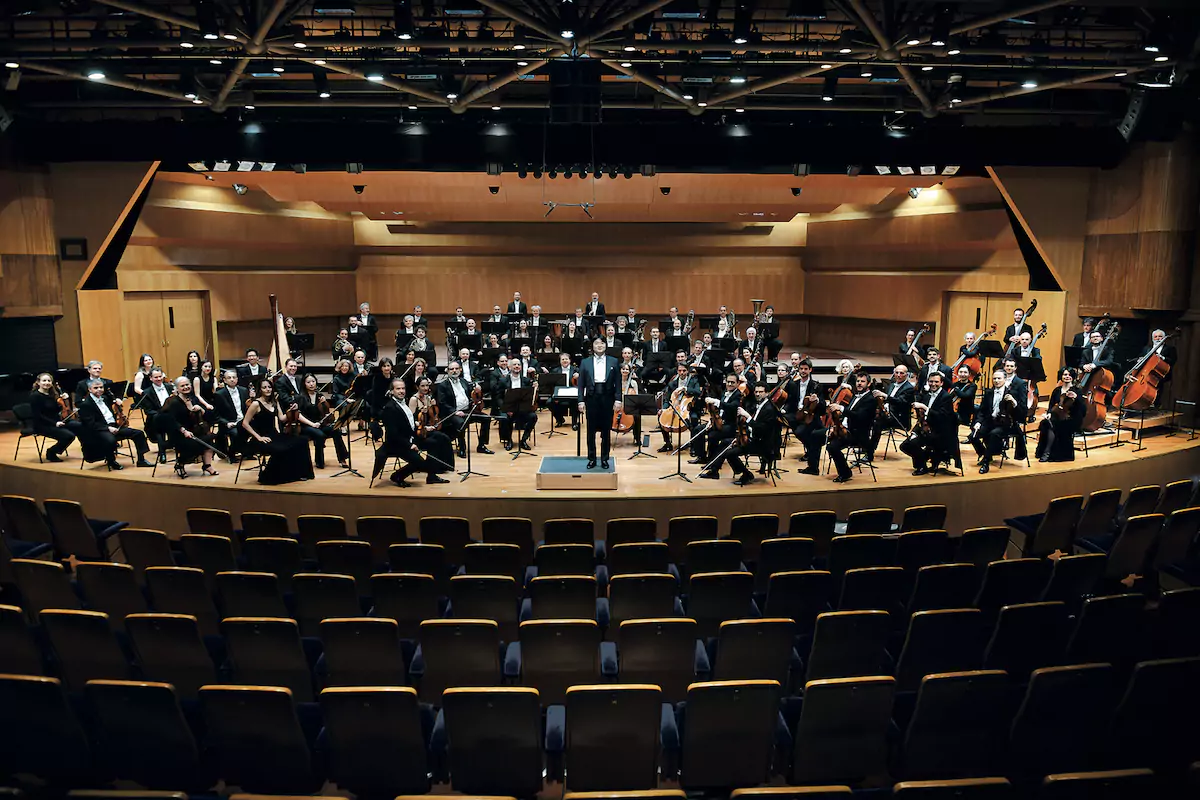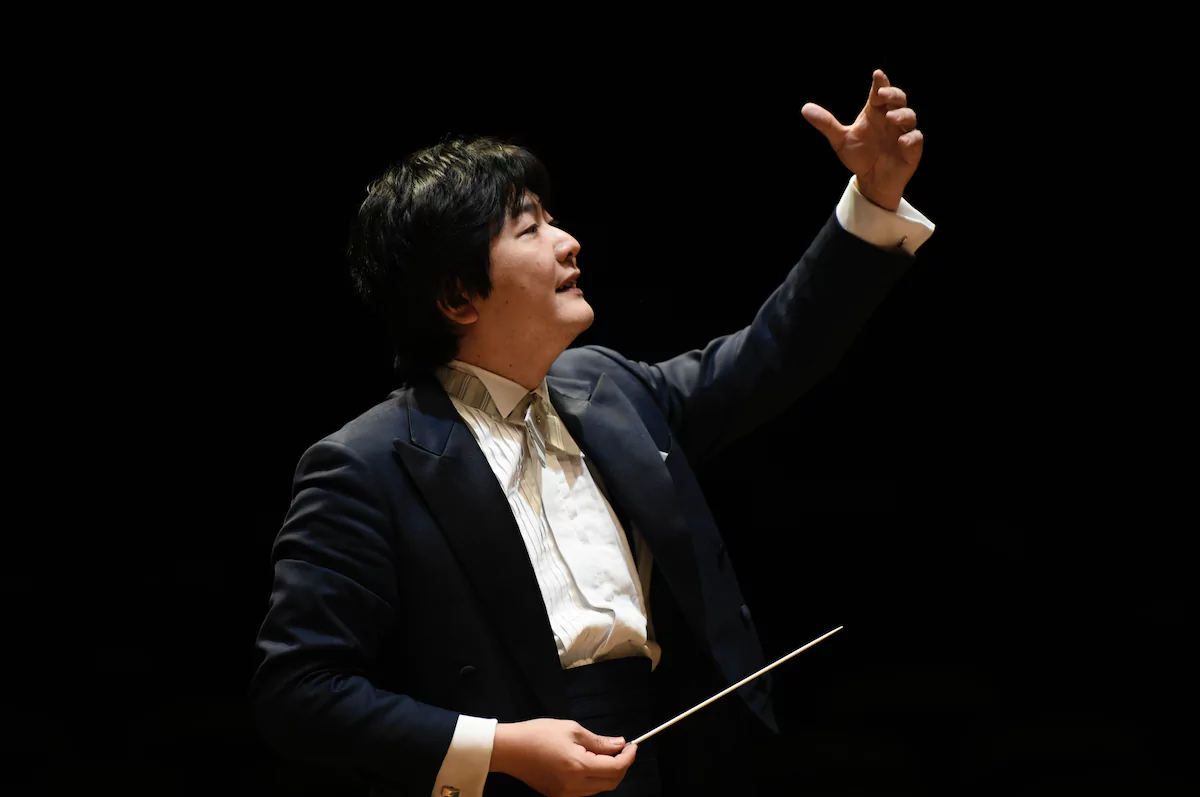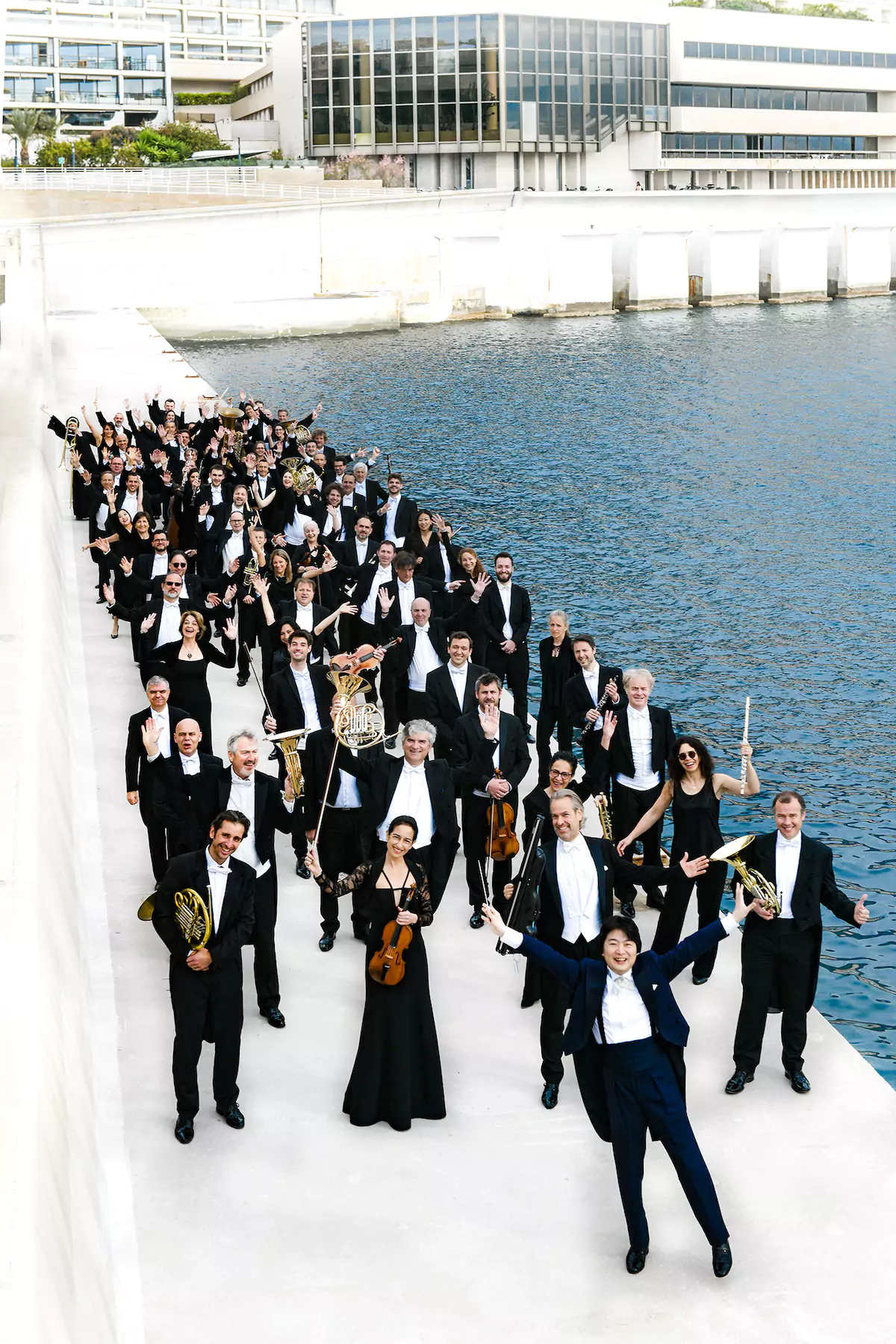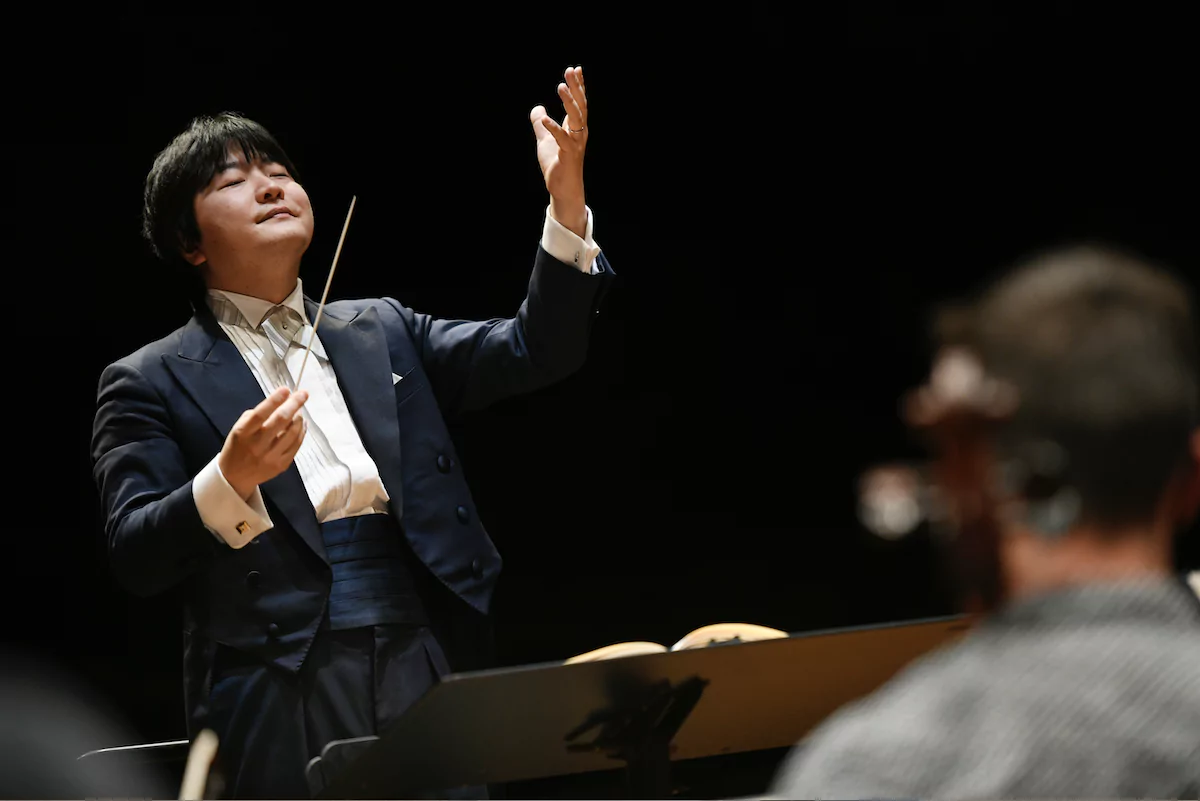In this interview with Monaco Life, Kazuki Yamada, the talented Artistic and Music Director of the Monte-Carlo Philharmonic Orchestra (OPMC), talks about the role of classical music in modern music, how he inspires his musicians, and what it takes to be a great conductor.
In September 2016, Kazuky Yamada succeeded the late Yakob Kreizberg as Artistic and Music Director of the Monte-Carlo Orchestra (OPMC), presided over by HRH Princess of Hannover. Yamada, born in 1979 in Kanagawa, Japan, studied at the Tokyo University of the Arts and continues to work and perform in his country of origin every season with the NHK Symphony Orchestra and as Principal Guest Conductor with Yomiuri Nippon SO. On top of that, he is the Music Director and Chairman of the Philharmonic Chorus of Tokyo and the Music Director of the Yokohama Sinfonietta.
The dynamic conductor already had a jam-packed schedule when, in the spring of 2023, he was appointed Chief Conductor and Artistic Advisor of the City of Birmingham Symphony Orchestra (CBSO). Yamada has since built a bridge between the Principality and Birmingham, having conducted collaborative performances on several occasions. He gave a series of concerts on tour around Japan with CBSO in the summer of 2023 and will take OPMC on tour to Japan in 2024. Despite his busy calendar, Yamada manages to spend quality time with his wife and family at their residence in Berlin, Germany.

Monaco Life: Who inspired you to pursue a music career and to take up conducting?
Kazuki Yamada: I was a choirboy as a child, and the teacher, who was a true artist, had a significant influence on me. He was strict in his education, took children seriously, and never compromised when making music. One day, he asked me, “Would you like to try conducting?”. When I responded yes, the choir became my first stage as a conductor. I inherited my music and singing spirit from that teacher.
What makes an outstanding symphony conductor?
There are as many ideal images as there are conductors. It is difficult to explain; however,
since the conductor is the only musician on stage who does not make a sound, trusting the orchestra is the most crucial feature. Furthermore, you are an excellent conductor if you can point out the path to follow and motivate everyone.
What do you feel needs to be done to grow classical music audiences?
Even though it is called classical music, there are different genres and perspectives.
What the conductor or music performer can do is continue to introduce a variety of appeals rather than a single approach.Beethoven and The Beatles may seem disconnected at first glance, but there wouldn’t be The Beatles songs without Beethoven.
Music is built on the history of tradition and evolution, so without classical music, there would be no rock, pop, or jazz. In other words, classical music is the roots and DNA of many types of music. It’s vital to hold concerts where people get to feel that DNA.We have entered an era where it’s essential to reach out and actively share your music rather than just waiting for the audience to come to the concert hall.
What is your role as an educator?
My first role is to convey and propagate music, but more importantly, I believe that we communicate how to live through music.Artistic and cultural activities express human life, so it is crucial to show an uncompromising attitude towards them.

What were your first impressions when you met the musicians of the OPMC and, recently, the musicians at CBSO?
Our first encounter with OPMC was in 2011 when I came to replace the late director, Yakov Kreizberg. So, I got the impression that the entire orchestra was enveloped in sadness. As I performed with them more and more, I realised that they were a bright and lively orchestra, and it became fun to work with them. Our bond has deepened even further by overcoming the difficult times of Covid together. I’ve been thinking of creating music that brings out the individuality in each musician.
The CBSO is in a completely different situation because financial pressure forces it to work faster, with fewer rehearsals, and focus on immediate efficiency. It was challenging to understand the characteristics of the orchestra at first, as it took only a short time from rehearsal to the actual performance. Still, I soon realised that it was a very positive orchestra. Both OPMC and CBSO are orchestras full of smiles.
What are the crucial criteria in establishing your credibility with the orchestra?
They say that a conductor must be “a musician’s musician”. A bond of trust forms only when there is an overwhelming love and understanding of music, and these emotions are shared. Working with music scores is lonely, but when I stand in front of an orchestra, I need to free and open my mind.
How do you select pieces for a concert program?
In the case of OPMC, we decide in consultation with Mr. Didier de Cottignies, the Artistic Delegate. Throughout the season, we strive to create programming and casting that appeals to our audience while ensuring a well-balanced mix of music from various countries and eras.
How do you convey the vision of the composer?
Sometimes, it comes through the score, and sometimes it comes to light by tracing one’s upbringing or learning about the history of that era. For example, Beethoven left behind a strict musical score, and playing according to the score leads to a good performance. But sometimes, I ask myself, “Did Beethoven ever see the sea?” We only know a little about the composer, so using our imagination is essential.
The performance may be better if the vision of 100 orchestra members is considered rather than just the conductor’s. Instead of limiting my perception, I would like to experiment alongside the question: “Did Beethoven ever see the sea?”
How do you inspire the musicians or singers?
Everyone has an excellent understanding of musical scores, so rather than just following them, I hope to offer them theopportunity to expand their imagination. There may be situations where you can convey those keywords verbally, but I would like to do this as much as possible while conducting. My commanding movements must reflect the flow of my emotions and thoughts somewhere in my commanding movements, and the better the musician, the superior the ability to interpret them.
With which instruments does the conductor have the most intense working relationship?
With every instrument alike! However, orchestras are unique, and there are specific sets of instruments that play the role of the conductor better than the conductor. For example, this is sometimes the case for the double bass and timpani; unless they move, the entire orchestra will not budge, no matter how hard the conductor tries.
Of course, the relationship with the concertmaster is very important. Vice versa, conductors need to build close relationships with all the musicians.

Toscanini said that the arms are an extension of the mind. What exactly are the orchestra members looking for when they glance up from the music to watch you conducting?
It depends on whether there is inspiration. I aim to conduct myself in a way that makes all the members look up to me.
How do you manage your busy international concerts, opera, and choral conducting schedule?
I have a great manager who helps me schedule all my tasks in a balanced manner. There are periods when I get swamped, but I also have plenty of time off to refresh myself.
Nowadays, people spend more time in front of screens. What are the advantages of attending a live concert?
People do not make eye contact on screens or while listening to a recording. Live concerts allow for a sharing of time and space. Sharing cannot occur unless real people come together, with the audience contributing to their emotions. Sharing the music, the venue, and the atmosphere is the appeal of live concerts. And there’s a unique sense of realism in a live performance, where we never know what will happen.
Main photo credit: Sasha Guzov OPMC
Join the Monaco Life community – sign up for the Monaco Life newsletter, and follow us on Threads, Facebook, Instagram, LinkedIn and Tik Tok.
SEE ALSO:
Interview: Cecilia Bartoli on taking the Opéra de Monte-Carlo to new heights
